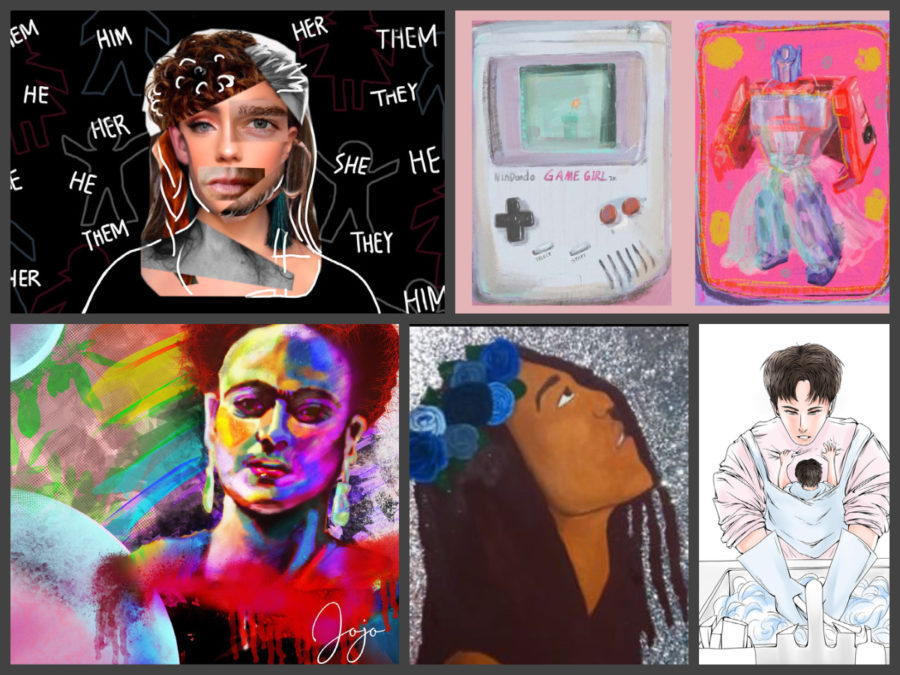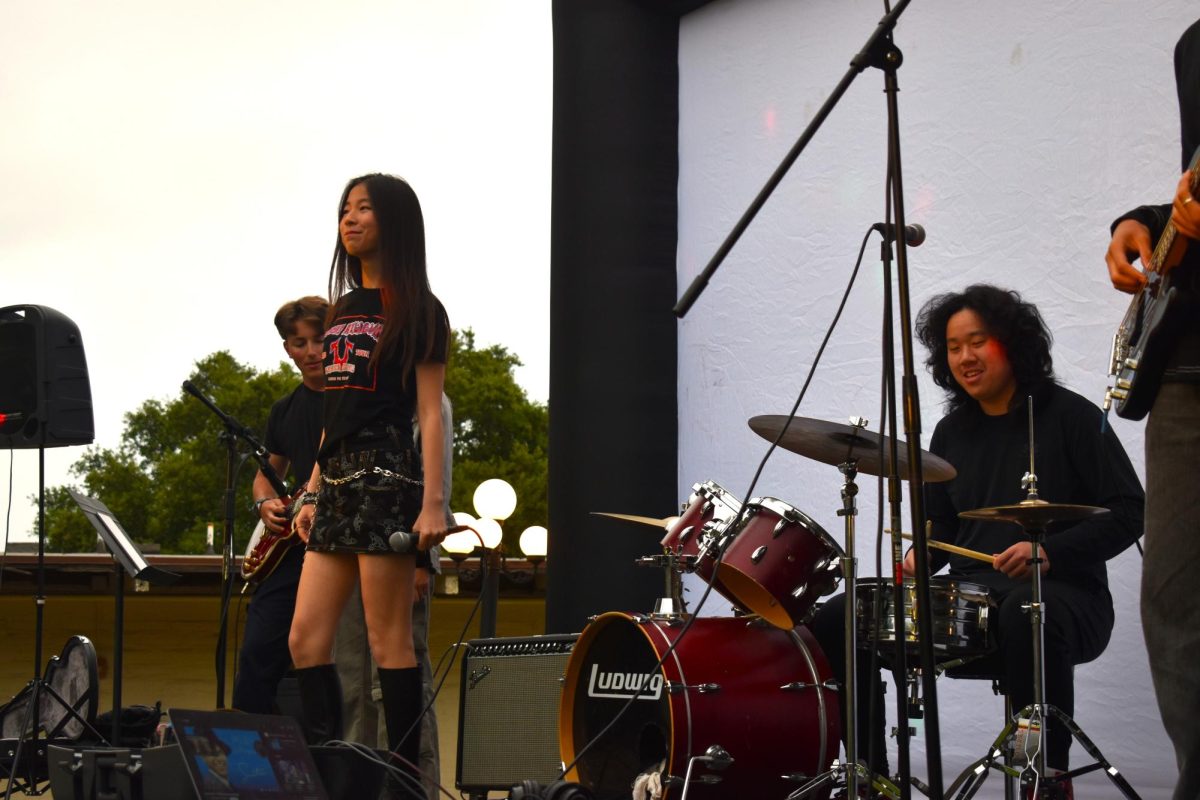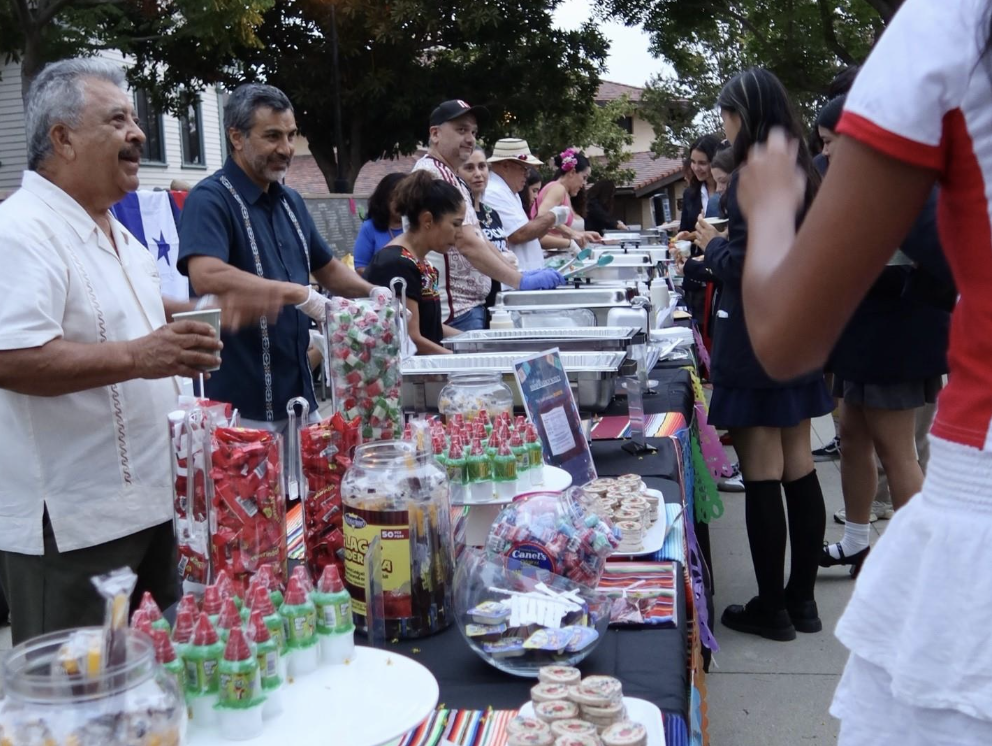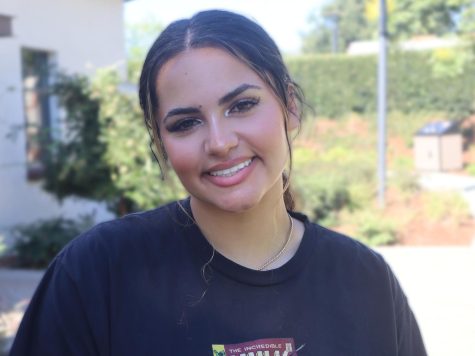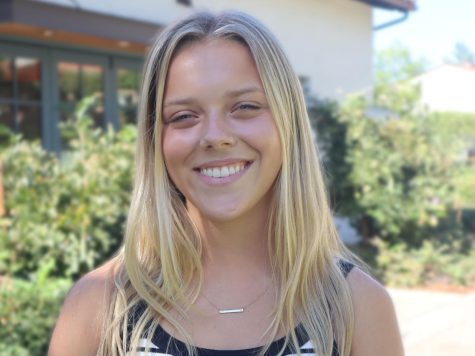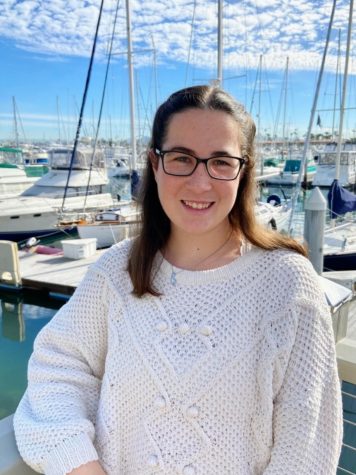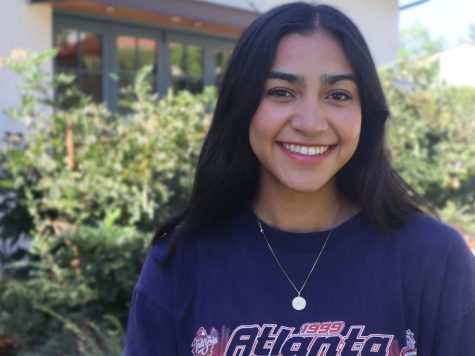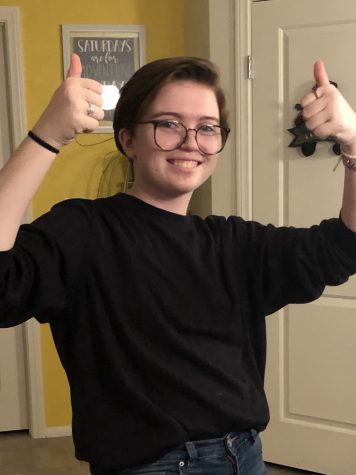The biennial symposium, Dies Mulieres and Men in the Arena, appeared again this school year, but with a new pressing theme. The theme of this year’s symposium was “Education as a Catalyst for Change” with hopes of the Webb Schools becoming more inclusive of people with all kinds of self-identity. Through Dies Mulieres and Men in the Arena events, Webb takes significant strides towards making its students feel appreciated. The highly anticipated event kicked off with an unprecedented activity that joined both VWS and WSC advisories.
Sunday night’s activity asked students to reflect on the question “Who am I?” with relation to their identity and their name. Then, each advisory pair created a Jamboard, a Google idea board, onto which they added words and pictures that represented their identity.
“I think Sunday nights activities were very candid,” Viraj Nigam (‘23) said. “I got a chance to understand other people’s honest perspectives about what comprised their identities and what kind of environment they would need to cater to that.”
Wednesday’s activities began with a 45-minute alumni panel, featuring Akua McLeod (‘16), Dakota Santana-Grace (‘11), Daniel Hernandez (‘13), and Diana Escalante (‘12). All of the alumni had graduated in the last 10 years. They answered questions about faculty members who had supported them, how they felt about the Webb curriculum regarding gender and race inclusion, social movements that occurred in their time at Webb, and more.
“I could relate to Diana Escalante’s story the most,” Valeria Gonzalez (‘23) said. “She mentioned that she was very close with the Valeras. For me Mr. Valera was one of the few faculty members that I could truly relate to and connect with culturally. He overall made my transition into Webb a lot easier.”
After the alumni panel, students returned to their individual advisories for 20 minutes to discuss the panel and offer their own answers to the questions that had been asked. Many students expressed that they found affinity with a certain alumnus on the panel, often due to similar identities or experiences. After 20 minutes, students had similar discussions, this time with their opposite-school advisory pair.
“I felt that it was interesting to see the changes over the years since the alumni have left campus,” Logan Causley (‘22) said. “They had a lot of comments about the curriculum’s diversity, which has changed and grown since their time at Webb.”
To close out the symposium, students heard from key-note speaker, Schuyler Bailer, a transgender male and athlete who swam for the Harvard men’s team. Bailer spoke about his experiences with mental health and gender identity, telling the story of his choice to swim for the men’s team rather than the women’s. Bailer later took questions directly from Webb students during his talk.
“I think this was the sort of speech Webb needed,” Stratton Rebish (‘24) said. “I feel like he took my heart deeper into understanding the issues transgender people face. Amplifying the voices of minority groups of any kind results in collective understanding and tolerance which is what the world needs.”
This event has been in the works since summer of 2020. It was planned by a committee including Shannon Uppal (’21), Catherine Li (’22), Brandon Martin (’21), Xander Kong (’22), Aliza Tyndale (’21), Isa Flores (’21), Hunter Lange (’22), Nick Lee (’22), Dr. Windmon, Mr. Choi, Abbie Arroyo (‘21) and Jake Sharifi (‘21). Abbie and Jake are Student Government Executives for VWS and WSC, respectively, so they played a large role in the planning of the event.
“The Empowering Student Voices Initiative really handled the educative aspect since we have been to many different diversity conferences, workshops, seminars, etc., and Student Government helped with student engagement and thinking about how all these large-scale topics can apply at Webb,” Abbie said.
The planning committees decided to change the fundamentals of what Dies Mulieres and Men in the Arena used to focus on. Instead of having gender separate conversations, this year Webb decided to combine the two events into one for a co-ed discussion. Rather than just focusing on gender roles in society, the committee decided to shift the focus to everything that makes up one’s identity.
“Members of ESVI noted Schuyler Bailar was their first choice, and when we discovered he was available, we booked him, and the rest of the symposium came together from there,” said Sarah Lantz, Dean of VWS. “The focus of identity and inclusion became the highlight.”
“Men in the Arena and Dies Mulieres our Sophomore year [in 2019] were more separated than this year in terms of VWS and WSC being in different places,” Jake said. “This year as the conversation was more intersectional, it was a lot more inclusive and diverse.”
The committee also decided to shift their focus due to the prominence of movements happening in the world today. Specifically, Abbie wanted to remind the community that not all people go through the same experiences. She wanted the symposium to be a place that could amplify the different voices of young people who are struggling to be heard. The educative stance of the symposium is meant to help destruct hateful mentalities and help to create progressive mindsets.
“What inspired us to shift the focus of Dies Mulieres/Men in the Arena from just talking about being men and women to a more intersectional conversation was seeing all the injustice and social movements arise,” Abbie said. “Education plays such a huge role in creating cultural change by teaching kids to lead with empathy and awaken them to realties of our history. Systemic change will only happen when we change the culture first by normalizing educating students on how to be anti-racist, anti-homophobic, anti-ableist, and more.”
Many enjoyed the focus on self-identity and intersectionality. Students believed it helped open many people’s eyes on what needs to improve in our own community.
“I think that the event got a good conversation going on how the Webb community needs to improve from the current status quo, in which many struggles to fit in,” Viraj said. “It challenged the rules and ideas the school has lived by for decades and made us critically think if we need to be living by the same traditions which may be archaic in a vastly different generation.”
The event opened conversations regarding Webb‘s diverse community and curriculum as well as old traditions and beliefs that we may need to stray away in order to create a more inclusive community.


